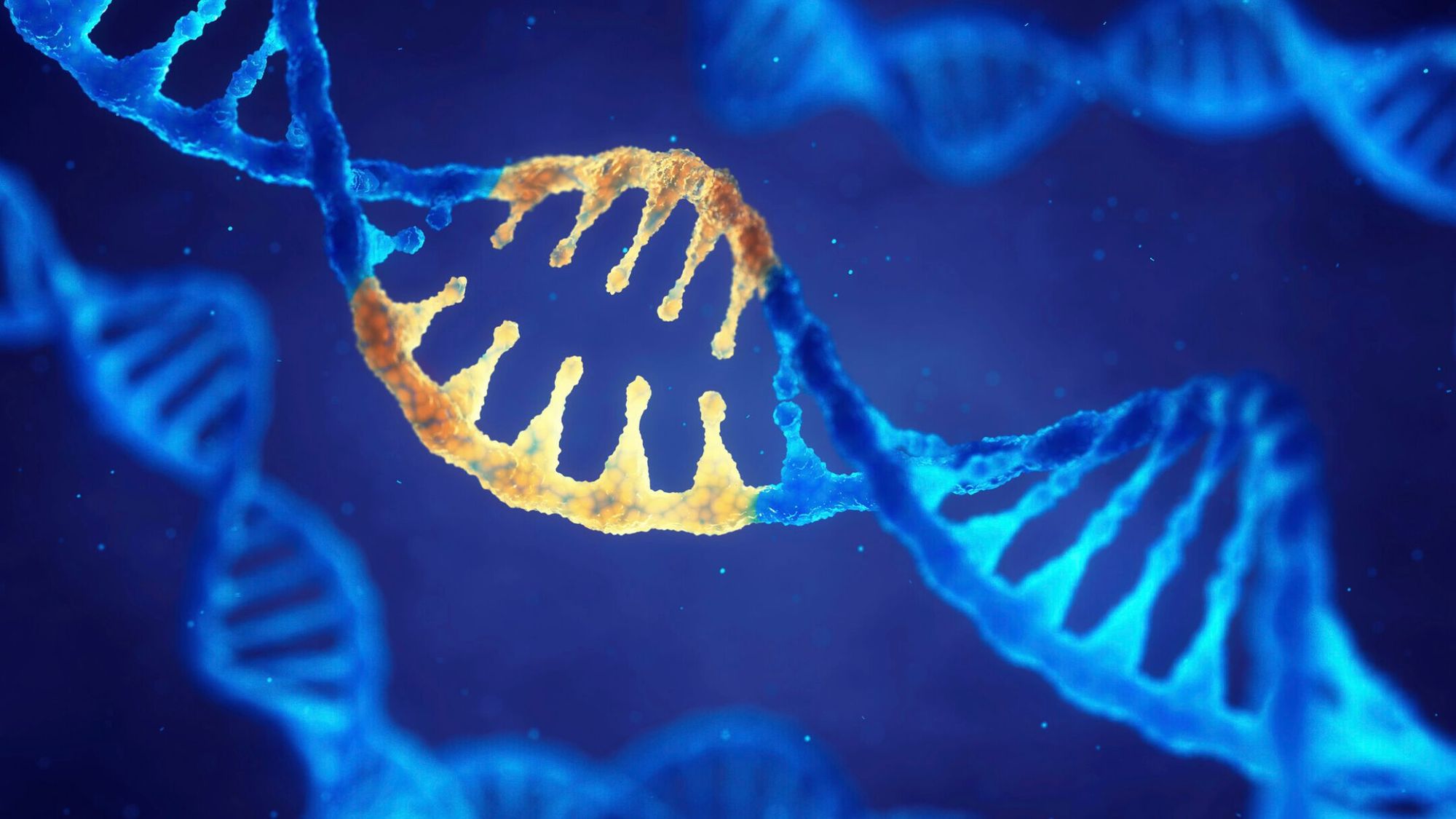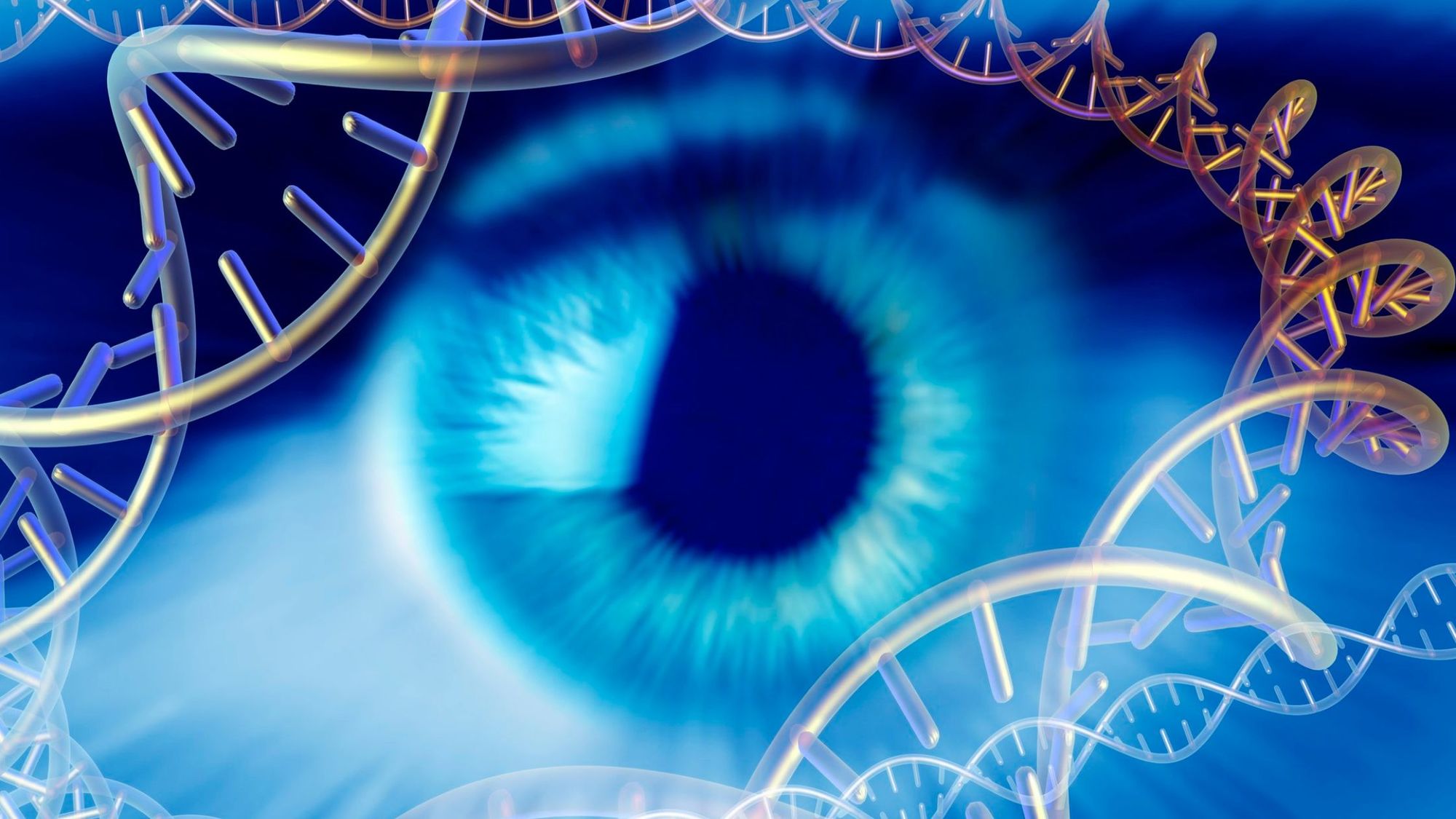
Is personality genetic, and how much of your identity and uniqueness is actually shaped by your genes?
On a fundamental level, we know that who we are is defined by many factors, from our early childhood experiences to the environments we encounter throughout our lives. As we grow, the personality traits we nurture and develop determine how we behave and interact with others.
Everyone knows that when it comes to who we grow up to be, it’s a mix of nature versus nurture, or basically, a mix of what’s in our DNA and our environment.
The situations and experiences you’re exposed to throughout your life (including your upbringing) will undoubtedly have an impact on the type of person you become. However, there are some personality traits which seem to be influenced directly by our DNA. Genetic personality traits don’t necessarily guarantee a person will be more disagreeable, or prone to problematic behaviors, but if you’re wondering is personality genetic, it’s true that genetics can influence your personality.
Here’s everything you need to know about the impact of genetics on personality.

What are Personality Traits? An Introduction
Our personality traits are the characteristics which help define who we are as a person, how we behave, what we can handle, and even how we respond to specific situations.
Our personalities are made up of a comprehensive range of different traits. For instance, some people are naturally extroverted and outgoing, while others are more introverted and reserved.
Is personality genetic? Although our genetics can influence our personality significantly, it’s worth noting that your personality traits aren’t necessarily set in stone, even if it’s in your DNA to possess a certain trait. Studies have revealed that personality traits can evolve and change with time. As we get older and learn more about the world around us, we often adapt to minimize toxic traits, and shape our personalities according to our own beliefs and values.
While scientists are still trying to determine exactly how many different personality traits there are, many experts still reference the Big Five model, when establishing personality. This model of 5 major personality types looks at personality based on five broad dimensions, and indicates each trait is based on a continuum. Some people exhibit high levels of certain traits, and lower levels of others.
The Big Five model identifies the 5 major personality traits as:
· Agreeableness: Often defined by kindness, trust, altruism, affection, non-combativeness, and the ability to interact positively with others.
· Extroversion: Confidence, talkativeness, sociability, being outgoing, and sometimes excitability are all components of extroversion.
· Conscientiousness: This personality trait is defined by high levels of thoughtfulness, mindfulness, and the ability to set and achieve goals.
· Openness: Open people are creative, capable of embracing different perspectives, and willing to try new things or step out of their comfort zone.
· Neuroticism: Often considered a more negative personality trait, neuroticism is defined by emotional instability, anxiety, the tendency to worry, and moodiness.
Most personalities are made up of a combination of these traits. An extroverted person might be friendly and outgoing, but also open and conscientious. An introverted individual could be shy, thoughtful, and potentially more agreeable.

Is Personality Genetic? How Genes Shape Personality
So, is personality genetic? Most experts agree our personalities are shaped by a combination of factors, making up the two areas of nature and nurture. According to a reputable twin study, approximately 30 to 60% of all human personality may come from genetics. However, this still leaves a large portion of your personality which can be influenced by your environment.
Studies into the impact of genetics on personality also reference temperament. Children show early signs of their personality traits in their temperament, which defines how they interact with their environment, and other people. Researchers believe that approximately 20 to 60% of a child’s temperament is based on their DNA.
Temperament is heavily governed by the traits we’re born with, and can influence how people develop and grow. The three primary temperaments among children are: slow to warm up, difficult or easy. A child with an easy temperament may be more open, agreeable, and willing to try new things, which could lead to a more extroverted personality.
While temperament influences our behavior and interactions with our environment, personalities are made up of a combination of traits, thoughts, characteristics, and behaviors which develop as we age.
Alongside temperament, genetics can also influence our likelihood of having certain larger personality traits. One study found genes such as PCDH15 and WSCD2 are often connected to extraversion, while the chromosome 8p23.1 is linked commonly to neuroticism. During their meta-analysis, the researchers also discovered certain personality traits were linked to psychiatric disorders.
A more neurotic person may be more likely to experience anxiety, depression, and other mental health issues. Certain personality traits also seem to be more connected to genetics than others. One report suggests that openness and neuroticism are highly governed by genes, but extraversion, agreeableness, and conscientiousness may be more connected to nurture.
Nature or Nurture: Is Personality Genetic?
Looking at the Big Five model for personality, researchers have begun to highlight the interaction between our DNA, and some of the core components of our personality.
The most commonly inherited personality traits include:
· Distractibility: Our ability to focus on specific topics may be heavily influenced by our genetics. People who are more distractible, as well as those with conditions such as ADHD, will often pass these traits down through their genes.
· Leadership: Extraversion is one of the most common traits influenced by genetics, though it can also be cultivated over time. Extraverted people are also potentially more likely to demonstrate strong leadership skills. In this study, researchers found a certain genotype was commonly connected with leadership and extraversion traits.
· Neuroticism: Many studies conducted to answer the question “Is personality genetic?” have found strong links between genes and neuroticism. Certain traits such as sadness and moodiness, or even high levels of anxiety, can be passed down through genes.
Alternatively, other personality traits seem to be linked more to the different environments we grow up in, as they’re shaped more by one’s environment than anything else. One report suggests children who grow up in rural and remote locations are more likely to develop personality traits such as patience and conscientiousness. Openness and etiquette (connected to agreeableness) are also more likely to be learned than passed down.
Children exposed to cultures and family environments which encourage polite, agreeable behavior and strong relationships are more likely to demonstrate these personality factors later in life.
What Else Shapes Our Personalities?
Human beings are extremely complex. We’re all born with a set of genetic markers which can contribute to various aspects of who we are. Our DNA influences everything from our level of intelligence, to our neuroticism, and even our chances of experiencing certain ailments.
However, genetic variants only account for a portion of our personalities. If anywhere up to 60% of your personality is genetic, the rest of your personality is linked to your environment, upbringing, and experiences throughout life. A child raised in a harmonious environment may become a calmer, more open person even if they have tendencies of higher levels of neuroticism in their DNA.
The Minnesota Study of Twins provides an excellent insight into the balance of nature and nurture in developing our personality traits. The study found identical twins commonly shared around 50% of the same traits, even when they were raised in different environments. Fraternal twins typically shared 20% of the same personality traits. The study also found the variance in a person’s IQ is about 70% based on genetic codes, while the remaining 30% was linked to environmental components.
Alongside your genetics, the other factors which can strongly affect personality include:
· Culture: We define culture as the shared beliefs, values, and social expectations of a certain group. The culture you’re exposed to as you grow and develop will influence your behavior, and the personality traits you develop. For instance, if you’re raised in a highly community-driven culture, you may be more agreeable and extroverted.
· Location: Similar to culture, your location, and where you grow up can make a huge difference to who you are as a person. Our home cities, towns, and countries all impact the hardships and experiences we’ll have throughout our lives. People in more rural environments may be more withdrawn and conscientious. Those who grow up in more active, busy and urban environments may have more neuroticism, but also a more extroverted personality.
· Community: Within locations and cultures, there are smaller groups we encounter throughout our lives, known as communities. The communities we interact with, from friends, to colleagues and even family members, can influence our beliefs and values. One theory developed by RJ Sampson suggests people living together in a community typically share a lot of the same personality traits.
· Education: Another major factor which can shape our personality characteristics, is our education. This involves not just where we go to school, but also what we’re taught by role models throughout our lives. Schooling experiences can lead to personality changes. A student who prioritizes consistent studying might be more conscientious. However, someone who’s exposed to complex educational environments may have a higher level of neuroticism.
Do Your Genetics Define Your Personality?
So, is personality genetic? The answer is yes, in part. A lot of the aspects of our personalities are defined by genetic codes which influence who we are from the moment we’re born. Specific genes can influence everything from how neurotic you are, to your level of extraversion.
However, genetics aren’t the only factor at play. Our environment, upbringing, and life experiences also have a direct impact on who we become. With your CircleDNA test, you can learn more about the genetic personality traits you’re likely to demonstrate based on your unique DNA. Using these DNA insights, you may be able to work on different traits and get to know yourself better, which is crucial for self-love and a healthily-formed identity.
If, because of your DNA test results, you know you’re likely to be a more reserved, neurotic person, you could seek out counseling and support to help you manage neurotic tendencies. While a big part of your personality does come down to your genetics, it’s also a flexible concept, which can be changed and altered throughout your life, with the right strategy. Everyone can learn and unlearn personality traits.
References:
- APA: Personality Stability From Age 14 to Age 77 Years
https://doi.org/10.1037/pag0000133 - Wiley Online Library: Twin Studies in Personality Research
https://doi.org/10.1002/9781118970843.ch139 - Medline Plus: Is temperament determined by genetics?
https://medlineplus.gov/genetics/understanding/traits/temperament - Personality Traits and Psychiatric Disorders Linked to Specific Genomic Locations
https://today.ucsd.edu/story/personality_traits_and_psychiatric_disorders_linked_to_specific_genomic_loc - NCBI: Heritability estimates of the Big Five personality traits based on common genetic variants
https://www.ncbi.nlm.nih.gov/pmc/articles/PMC5068715/ - The World: Leadership can be an inherited trait, study says
https://theworld.org/stories/2013-01-16/leadership-can-be-inherited-trait-study-says - Fast Company: Our environment shapes our personality much more than we think
https://www.fastcompany.com/90449165/our-environment-shapes-our-personality-much-more-than-we-think - Science: Sources of Human Psychological Differences: The Minnesota Study of Twins Reared Apart
https://www.science.org/doi/10.1126/science.2218526 - NCBI: Direct and Moderating Effects of Community Context on the Psychological Well-Being of African American Women
https://www.ncbi.nlm.nih.gov/pmc/articles/PMC1913215/
https://www.psychologydiscussion.net/personality-development-2/top-3-factors-influencing-personality-development/1934
https://www.yourarticlelibrary.com/personality/factors-that-influence-our-personality/44953
https://today.ucsd.edu/story/personality_traits_and_psychiatric_disorders_linked_to_specific_genomic_loc
https://www.sciencealert.com/scientists-find-genetic-links-between-personality-traits-and-psychiatric-diseases
https://www.familyeducation.com/family-life/relationships/history-genealogy/is-personality-tic#:~:text=Some Traits Are Inherited,agreeableness%2C conscientiousness
nd openness.”






Comments are closed.